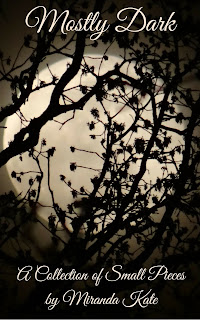 Brave New World by Aldous Huxley
Brave New World by Aldous HuxleyMy rating: 4 of 5 stars
I wonder what Aldous Huxley would think of his books being read on a hand-held electronic device? At the time he wrote this he could not conceive of the technology that would arrive in less than a 100 years after he had written it. And although his descriptions of advancement in technology are out-dated and clearly based off what was available or popular in the early 1930s (like helicopters), the concepts he talks about are not. There are so many layers in this book.
I wonder why this book is not studied in schools rather than the likes of Lord of the Flies and The Handmaids Tale, which are not as well written or as philosophical about civilisation in their storylines - although Aldous Huxley's constant use of the word 'Pneumatic' might have something to do with it. A word that he seems to think covers a wide range of things, but is not really a word used in this day and age. This is one of the few down falls of this novel, along with its steampunk and old fashioned feel, which is common in Science-fiction from the turn of the century - it's dated. The same thing will happen in a 100 years with modern day sci-fi. The pictures authors paint of a modern future are tainted by the current state of technology and fashion.
It could also be the underline message in this novel that is so disturbing. The idea that to keep a world of genetically engineered people believing they are happy, they have to be conditioned through subliminal audio dictations while sleeping as children, and once they reach adulthood to give them access to a drug that they can take when they need to obliterate any emotion other than the pretense of being happy. They are conditioned that it is not normal to spend time alone and to always go out and socialise. And that everyone has sex with everyone else whenever they like - it's impolite not to. There is no risk of pregnancy or disease or aging. Their salary is the drug, to keep them under control and civilised, and at no time feeling anything negative. It's the ultimate horror novel - and why I enjoyed reading it so much. The ending is the other extreme of what happens when someone not raised in such conditioning tries to live and function there, and to some extent the outcome of such false living. I could say suppression but really, are they, with access to anything their hearts desire? Although that debate is in itself what makes this novel so intriguing.
I remember the film which doesn't really put across the depth of the novel, as movies of books often don't, and I think of movies like The Island which are influenced by this novel in the concepts of genetic engineering and cloning.
I understand why others might not enjoy this novel, with its outdated language and style, but I thoroughly enjoyed it and would recommend it to any science-fiction lovers.
View all my reviews




